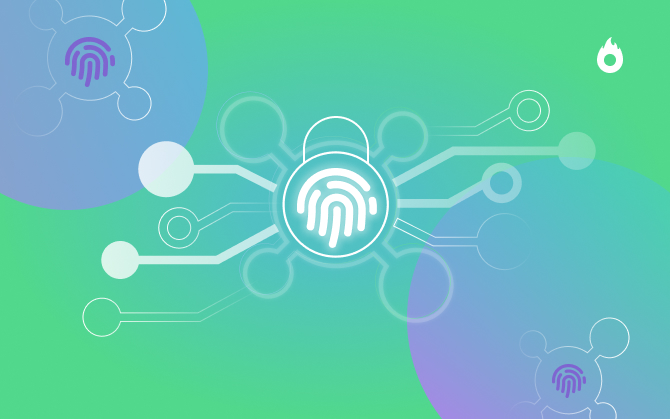
Best practices to protect your business from cyber threats
Learn how strengthening digital security prevents new digital victims from not being created.

What will we see in this post
Nowadays, there are lots of news stories out there about people and businesses under cyber attack or facing data leak issues.
This issue concerns everyone, but digital entrepreneurs are especially affected, so they need to learn about digital security and how to avoid cybersecurity traps.
Brands have built their equity based on digital data and information, so it is essential to know how to protect your business from cyber threats.
Unfortunately, there’s no foolproof system, but experts in the area recommend following best practices that will help prevent risks such as cyber-attacks and data breaches. Keep reading this post to check out our valuable tips.
What is digital security?
Digital content creators — those that create digital products — have several questions about how to start an online business, how to monetize it, where to find support, and how to protect themselves on the Internet.
The importance of digital security is one of the questions that must be asked, and it refers to the protection of a user’s identity or a business’ data on the Internet. It can be compared to the physical security you need regarding your real data.
This means that in the real world, no one leaves information, such as one’s credit card number, password, social security number, or other personal data, on display.
Therefore, the same care must be taken when using digital devices, and we have digital tools, such as software, antivirus programs, applications, and tokens that strengthen digital data security.
Digital security extends to any content or information that has value to any organization or person. Even if its use is restricted or available publicly for consultation, confidentiality and privacy must be respected.
This isn’t what happened when Facebook sold user data to companies so they could create advertisements based on the privileged information provided by the social network, for example.
How important is digital security for a business?
It is a fact that technology has evolved and has brought new ways of establishing relationships. However, just as it can help, it can also harm us when users with bad intentions break into systems and steal information.
As an entrepreneur, it is critical that you be concerned about the security of digital information, because it relates to preserving the basic attributes of confidentiality, integrity, and availability of data.
Moreover, when customers access your website and exchange their personal information with your brand, they are assuming that you have properly invested in digital security so that their data is safe.
5 examples of the main digital traps
Many sophisticated digital traps exist, but users make many simple mistakes, which are the gateway to criminal attacks.
Carefully reading the privacy policies of websites and applications, strengthening passwords with numbers, uppercase and lowercase letters, and special characters, and reducing excessive exposure on social media, such as posting important dates, the names of family members, and work and home addresses, are attitudes that can reduce digital risks.
Check out the main cybersecurity traps and how to avoid them.
1. DDos attacks
A DDos (distributed denial-of-service) attack is an attempt by hackers to make system resources unavailable to users. The targets are commonly the web servers where the Internet pages are hosted.
This attack is not an invasion, but an invalidation by means of an overload.
The best way to avoid these attacks is to enable firewalls, update passwords frequently, and check the data traffic flow. If the flow has changed, your server might be under attack.
2. Phishing
Phishing is the name given to a technique that seeks to “fish” users’ personal and banking data, using fake websites and bank, store and official government agency apps. With this information, hackers are able to perform transactions or loans on behalf of third parties.
To prevent this from happening, it’s necessary to pay attention to a few details: never enter websites and provide your information based on emails or text messages received. Banking institutions and serious organizations do not ask for registration updates this way.
Also, whenever you enter a bank or store website where you wish to make a purchase, look for the security certificates at the bottom of the page and the padlock symbol on the URL link.
You should also be careful with applications that run in the background on cellphones and have access to other apps and your cellphone’s information.
3. Spam
Spamming is one of the best-known digital traps for attracting users. This practice refers to sending unauthorized messages to numerous users at the same time.
Besides being an unpleasant and outdated outbound marketing practice, spamming is the gateway to many emails with viruses and malicious links.
Therefore, in order to avoid this form of contact is by using email services, such as Google, Yahoo and Hotmail, which already have anti-spam filters, and not open messages from unknown senders, and be suspicious of links that don’t start with “https”, or attached files with an .exe extension.
4. Viruses
Viruses are malicious applications that can steal data, open doors for hackers, or damage your machine. Each virus is designed for a purpose, but they need to be opened or run in order to be able to infect the user’s machine.
This is why it’s so important that antivirus and firewalls are always up to date. This kind of digital trap can enter through spam, which arrives daily in your mailboxes.
Thus, the recommendation is to never download files or click links in emails from senders you don’t know.
5. Spyware
Spying is one of the tricks hackers use to get into a user’s webcam and microphone. Furthermore, by means of spyware, which is malicious code, hackers can also gain access to computer screens, recording information entered such as passwords and confidential information.
To protect yourself from these actions, we recommend that you cover your webcam with tape and only remove it when necessary, as well as to disable the audio components. To curb spyware access, we recommend that you keep your antivirus and firewalls active.
Content producers and digital security
Before creating and selling digital content, digital creators need to worry about a number of factors that will ensure the safety of their work and that of users.
They need, for example, to create mechanisms that protect their material from digital piracy, which is very common nowadays, because people believe that if the content is available on the Internet, it belongs to everyone.
In addition, they need to be aware of the importance of digital security and how to avoid the main internet dangers and traps so they can produce content and sell their services without running the risk of losing information.
We hope you enjoyed our content about digital security! And if you’re a content creator looking for a secure and trustworthy platform to host your content, take a look at this article: Hotmart All-in-One: Solutions for Creators to Become Entrepreneurs.





